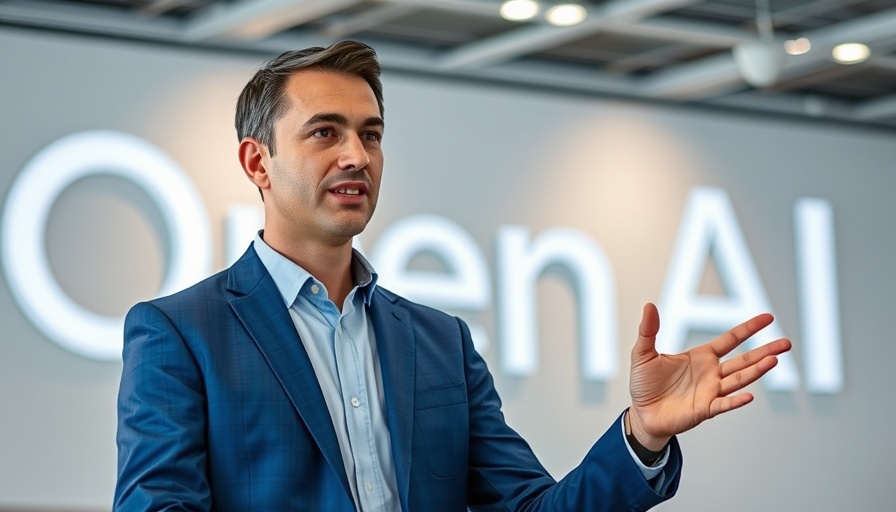
The Crucial Shift at OpenAI: A New Direction for AI Development
OpenAI, under the leadership of CEO Sam Altman, has embarked on a transformative journey aimed at reshaping the future of artificial intelligence and its societal implications. In a recent open letter, Altman revealed a strategy that reflects a commitment to not just technological advancement but to a broader purpose of benefiting society. By transitioning the profit-making side of OpenAI into a Public Benefit Corporation (PBC), the organization aims to balance profitability with a mission to serve the public good.
A Shift in Philosophy: From Exclusivity to Open Access
This significant shift comes as a response to prior criticisms from industry figures, including co-founder Elon Musk, who argued for a more open-source approach to AI. Historically, the organization maintained a protective stance on its models, leading to concerns about access and ethical governance. Altman's current assertion that, "We want to build a brain for the world" underscores a newfound emphasis on inclusivity. This philosophy prioritizes widespread access to AI tools like ChatGPT while recognizing the necessity for appropriate boundaries.
Addressing Safety and Ethics: The Future of AGI
As the emergence of Artificial General Intelligence (AGI) becomes more plausible, Altman emphasizes the dual importance of safety and ethical alignment. He has acknowledged that earlier in OpenAI’s development, there were hesitations about releasing AI tools to the wider audience, stemming from fears of misuse. Now, as they advance toward a more democratic AI landscape, there is a renewed commitment to ensure that the benefits of AI do not fall into the hands of a few, potentially fostering authoritarian applications instead.
The Role of Collaboration: A Stronger Framework
OpenAI has also indicated a willingness to collaborate with regulatory bodies and partners, including Microsoft, to navigate this new territory. By consulting with attorneys general in states like California and Delaware, OpenAI seeks to align its operational framework with legal standards and societal expectations. The integration of external oversight may not only enhance transparency but also foster a sense of trust in how AI is utilized within industries.
Future Predictions: What Lies Ahead for OpenAI and AGI
Looming questions remain about how the PBC structure will influence OpenAI's strategies and if it will indeed lead to meaningful changes in societal outcomes. Will the non-profit aspects facilitate better governance over AI technologies? As the tools become more accessible, there is potential for innovation across various sectors, from healthcare to marketing. OpenAI’s commitment to providing resources allows businesses to implement AI-driven solutions that are ethically grounded and beneficial to the broader community.
Final Thoughts: Why This Matters to Industry Leaders
For CEOs, marketing managers, and business professionals, understanding OpenAI’s transition is pivotal as it symbolizes a movement toward more accountable and equitable AI practices. As tools like ChatGPT evolve, they hold the power to transform business operations, marketing tactics, and consumer engagements. Embracing this shift and advocating for responsible AI usage will be crucial in shaping the future landscape of industry.
The commitment to create an AI that prioritizes societal welfare while fostering innovation is a message that resonates far beyond tech circles. Professionals steeped in tech-driven environments must remain proactive in integrating these insights into their business strategies, ensuring they are not just consumers of AI but also contenders in shaping its ethical frameworks.
 Add Row
Add Row  Add
Add 




 Add Row
Add Row  Add
Add 

Write A Comment